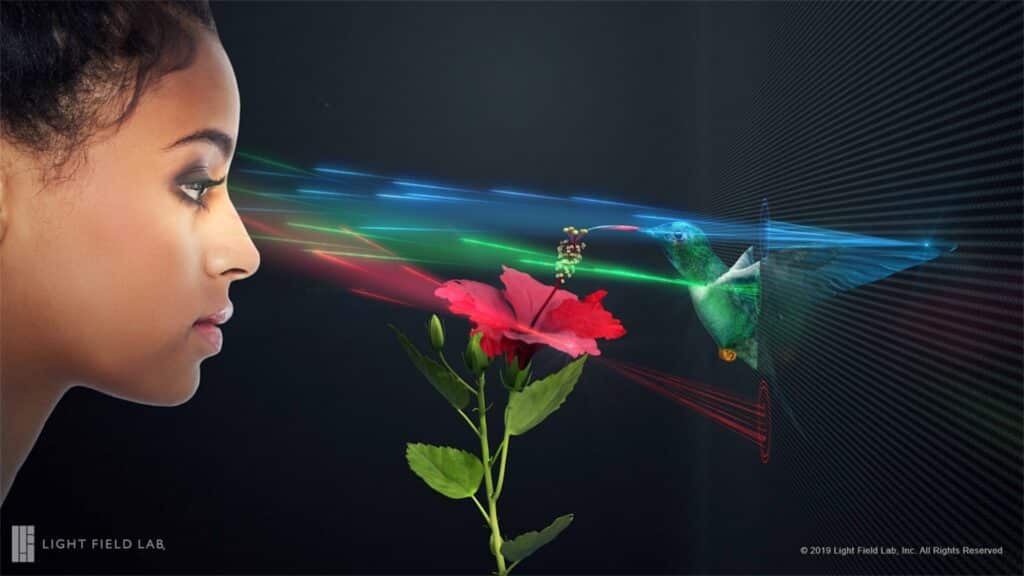Would you like to get notifications from Christian?
Google has announced that it has bought Raxium, a company that has been developing single-panel MicroLED display technologies for the last five years. According to the search giant, the technologies that Raxium has developed will be used in next-gen technology and offers “miniaturized, cost-effective and energy-efficient high-resolution displays”. This move by Google signals the company’s intention to enter the fledgling but growing 3D light-field display market for MicroLED displays.
According to some key facts from the Raxium website, its technologies are 300x smaller, 1000x brighter, and use 50% less power than the competition. It also says that its MicroLED technology will enable an entirely new class of smaller and more powerful display products such as augmented and virtual reality micro-displays and life-size panel-based light field arrays. With light field arrays, users could experience life-like holograms and three-dimensional images and videos without the need for eyewear.

3D displays without the need for expensive heavy goggles or bulky eyewear have a massive potential to make digital experiences more engaging and immersive. The ability to see three-dimensional images without any type of eyewear will allow for a wider range of users, as well as new applications in areas such as gaming, entertainment, and education.
Raxium’s technology has the potential to change the way we interact with digital content forever. With its small size, high brightness, and low power consumption, microLED displays are poised to take over the market for displays in a wide range of applications. Google’s acquisition of Raxium gives the search giant a leg up in the race to develop this technology and bring it to market. only time will tell if this bet pays off for Google, but I think it’s a safe bet that this technology will be big in the years to come.
So what do you think? Is Google’s acquisition of Raxium a smart move? Let us know your thoughts in the comments!
Author: Christian Kromme
For Disruptive Inspiration Daily
Christian is a futurist and trendwatcher who speaks about the impact of exponential technologies like AI on organizations, people, and talents. Christian tailors his presentations to your audience's specific industries and needs.



Our world is changing at an exponential rate! A big tidal wave of digital transformation and disruption is coming at us fast. Many organizations see this wave as a threat and experience stress, but there are also organizations that just see this wave as an opportunity.

Imagine sitting with just 10-15 fellow executives at a premier location, gaining clarity on the impact of AI on your industry while enjoying an exquisite dining experience. These are not just meetings—they are transformative moments that will shape the future of your organization



In the future, 3D printing and generative design will allow for products to be designed in a more decentralized manner, and production will take place closer to the customer and fully on-demand. 3D printing technology will also allow for more customization and personalization of products.


The agricultural industry is ripe for disruption. Robotics, AI, and IoT are all technologies that have the potential to radically transform the way we grow food. In combination with vertical farming, these technologies could increase the efficiency and quality of agricultural products.

A human-centered society is one that puts people first and where technology is used to unite and empower people. It is a society that values biological life and dignity above all else. It is a society that recognizes the importance of human relationships and works to strengthen them. In a human-centered society, all members of the community are valued and treated with respect.


The future of healthcare is here. New technologies like AI, IoT, big data, and smart sensors make it possible to become the CEO of your own health. Imagine that your phone can listen to your voice and AI algorithms can detect small nuances in the tone of your voice that indicate specific diseases.
